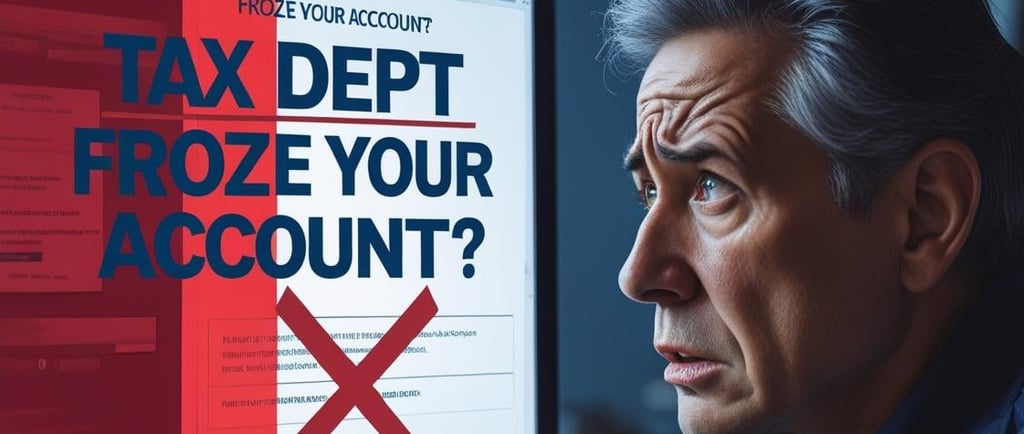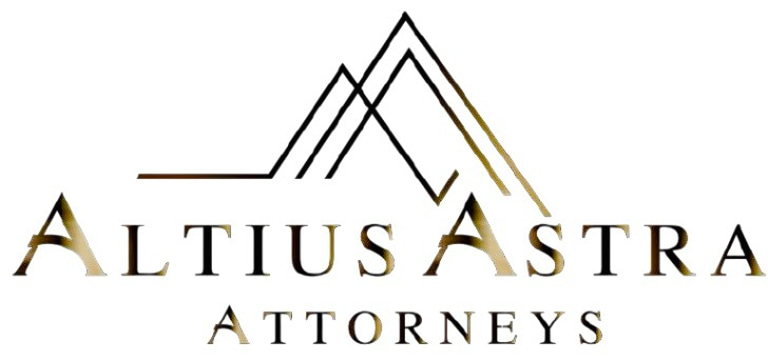Tax Department Froze Your Account? Delhi HC Says No Cheque Bounce Case Against You!
Adv Nadeem Saifi | Partner | Altius Astra Attorneys
6/25/20253 min read


Tax Dept Froze Your Account? Delhi HC Says No Cheque Bounce Case Against You!
Ever had that sinking feeling when a tax freeze slams the brakes on your bank account? Now imagine someone deposits your cheque knowing it’s frozen – and then tries to slap you with a criminal case. That’s exactly what happened in a Delhi courtroom last month, and the High Court’s verdict is a lifeline for businesses caught in bureaucratic crossfire.
Here’s the straight talk from M/S Best Buildwell v. M/S R.D. Sales (June 2025) before Justice Ravinder Dudeja:
A builder (Best Buildwell) bought steel supplies from R.D. Sales. They handed over two cheques for ₹2.4 lakh each, but with a clear understanding: "Don’t cash these unless we give the green light." Standard practice when sorting out big deals.
Then, the hammer dropped. On January 22, 2024, the GST Department provisionally attached the builder’s bank account under Section 83 of the CGST Act. Instant freeze. No money in, no money out. The builder did the right thing – they immediately told the steel supplier about the freeze in writing.
But guess what? On February 8, 2024 – weeks after the freeze and despite knowing about it – the supplier went ahead and deposited both cheques. Unsurprisingly, the cheques bounced. The bank’s memo cited "insufficient funds," but everyone knew the real villain: the GST Department.
The supplier didn’t blink. They filed a criminal complaint under Section 138 of the Negotiable Instruments Act (the cheque bounce law). The trial court issued summons. The builder fought back, rushing to the High Court to quash the case. Their plea? "How can we be criminally liable when the government literally padlocked our account?"
The High Court’s Bombshell: "No Prosecution Here"
Justice Dudeja didn’t just agree; he laid down the law with crystal clarity. Here’s why the case got tossed:
Your Account on Ice? It’s Not "Maintained" by You Anymore:
Section 138 only applies if the cheque is drawn on an account "maintained" by the drawer (the person who wrote the cheque).
The Court’s Punchline: "An account under statutory attachment is NOT ‘maintained’ by the drawer." When the taxman slaps on those handcuffs, you lose all control. You can’t deposit cash to cover the cheque. You can’t stop payments. You’re powerless. (Citing Deepinder Singh Bedi v. State, Vijay Chaudhary v. Gyan Chand Jain). This alone was a knockout blow.
Punishing Involuntary Default? Not a Chance:
Section 138 punishes dishonour due to your own failure – either insufficient funds you caused, or exceeding your arranged limit.
The Court’s Reality Check: "Dishonour caused by statutory freeze (beyond drawer’s control) lacks culpability. Prosecution requires a volitional failure." This wasn’t the builder stiffing the supplier; this was the builder getting stiffed by the government. The court leaned hard on precedents like Ceasefire Industries and Sachin Jain that shield people from punishment for things utterly outside their control.
That "Insufficient Funds" Memo? Don’t Take it at Face Value:
Banks often use "insufficient funds" as a catch-all return reason. Here, the actual, proven cause was the GST freeze, pre-dating the cheque deposit.
The Court’s Smackdown: The technical bank memo doesn’t override the concrete evidence of the attachment causing the bounce. Substance beats formality.
Why This Ruling is a Big Deal for Your Business:
Breathe Easier During Tax Troubles: Got hit with a provisional GST/Customs/Income Tax attachment? This judgment is your powerful shield against suppliers or creditors trying to weaponize cheque bounce laws while your hands are tied. Criminal prosecution under Section 138 shouldn’t add to your nightmare.
SHOUT About the Freeze (In Writing): The builder won partly because they promptly informed the supplier in writing about the freeze. Paper trail = Protection. Do this the moment your account gets frozen.
Issuing Cheques from Frozen Accounts? Tread VERY Carefully: While the court sided with the builder here because of the "prior understanding" not to cash without consent, issuing cheques you know will bounce from a frozen account is playing with fire. Disclose everything upfront, in writing. Better yet, avoid it unless absolutely necessary and clearly agreed.
Lawyers, Sharpen Your Quashing Knives: This case is prime ammunition for filing petitions under Section 482 CrPC (or the new BNSS) to quash Section 138 complaints early when a pre-existing account freeze is proven. Gather those bank statements, GST attachment orders, and proof of communication like your case depends on it (because it does).
Fighting a Case? Prove the Freeze Timeline: If you’re the drawer, proving the attachment date before the cheque presentation date is critical evidence. Get those official docs fast.
The Bottom Line (No Legalese):
The Delhi High Court cut through the noise: You can’t criminally prosecute someone for a cheque bouncing when the government itself froze the account and made payment impossible. It’s about basic fairness. Section 138 targets deliberate defaulters, not victims caught in a bureaucratic limbo. This ruling slams the door on using cheque bounce laws as a blunt instrument when the real culprit is a taxman’s attachment notice.
Case Citation: M/S Best Buildwell v. M/S R.D. Sales, decided by the Delhi High Court (Justice Ravinder Dudeja) in June 2025.
Altius Astra Attorneys
A premier law firm based in Delhi, India, offering legal representation across various practice areas for citizens rights and interests.
© 2025. Altius Astra Attorneys. All rights reserved.
Contact Us
📞 9899290789, 9818786756
📧 contact@altiusastra.com
3C-ED Block, Madhuban Chowk, Pitampura, Delhi-110034
DISCLAIMER
